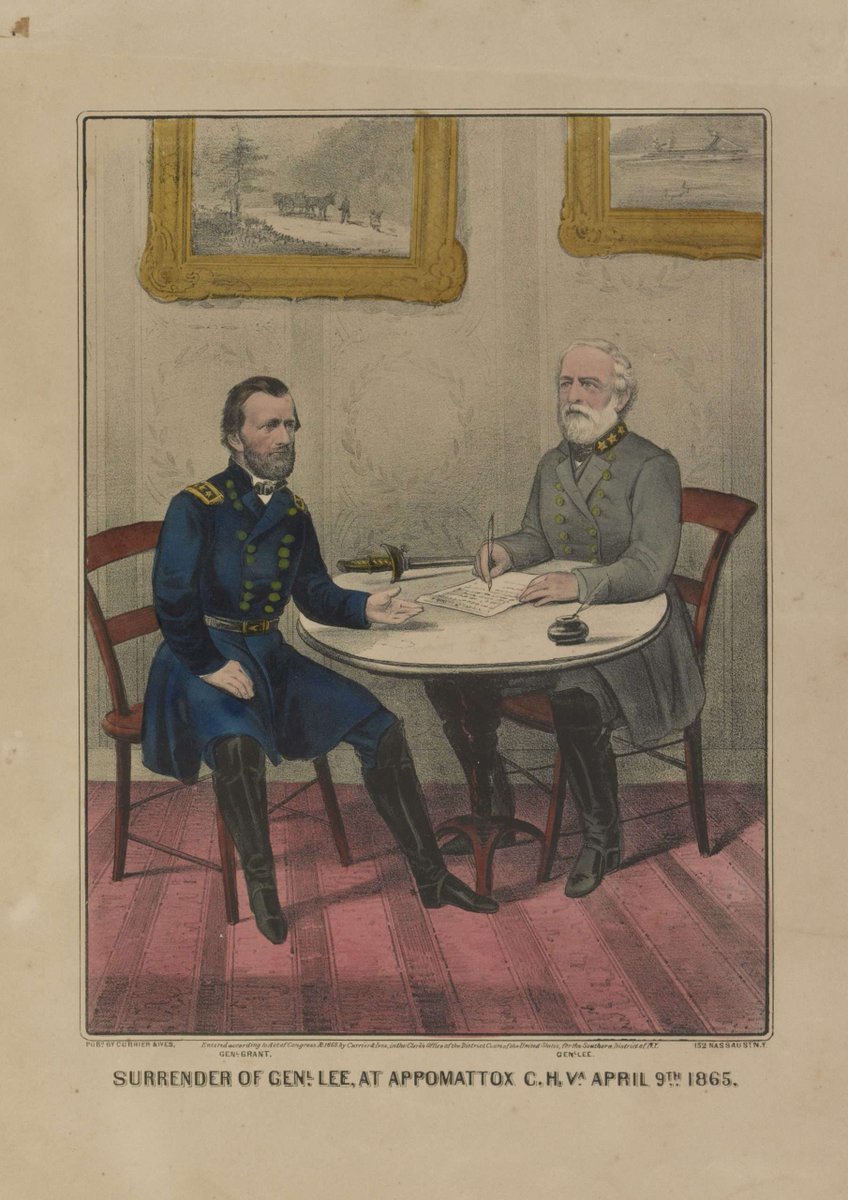
Historian. Islanders/Yankees fan. Posts represent my views, not those of my employer. RT implies nothing. Trolls may be blocked/muted. Also on P/M/Th/BlueS.
How to get URL link on X (Twitter) App




 The table is a curious effort to bring together elements of the two tables involved in the event. Grant said at a brown wood oval table; Lee sat at a squarish marble table. Grant's chair was a swivel desk chair backed in leather, while Lee sat in a high-backed chair.
The table is a curious effort to bring together elements of the two tables involved in the event. Grant said at a brown wood oval table; Lee sat at a squarish marble table. Grant's chair was a swivel desk chair backed in leather, while Lee sat in a high-backed chair. 





